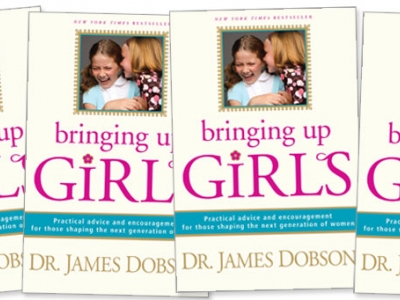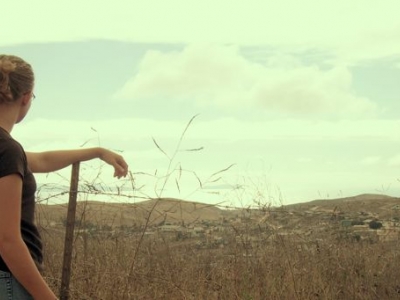
Three things teenage daughters wish their dads knew
Jonathan Holt conducted a simple survey with his daughters. Their answers may surprise you.
The results are in: after a brief and largely unscientific* survey, I am pleased to reveal three important things that teenage daughters wish their dads knew. This is a tricky area to delve into, because as our little girls grow to be women, they can become a puzzle to the average dad. All the skills we developed to deal with babies and primary-aged daughters seem to no longer work. We can feel like we are trying hard to be the same kind of dad we were before, but our daughters have changed.
The methodology for this survey was simple: I asked my teenage daughters. I talked to the young women in my house (and if this is the only thing you get from this blog, then feel free to leave this webpage open, and go and talk to your teenage daughter now!). I am thankful that my kids were thoughtful and open in answering my questions. And here are the results:
“I wish he knew about my friends.”
It turns out that a girl’s circle of friends are super important. Pretty much every book on raising teenage girls will tell you this, but the problem to my mind is that you are learning about it from a book and not from your daughter.
Asking questions is your best approach to change this. If you are able to consistently ask a question or two, you will gradually build a picture of who is forming the support network for your daughter outside of the home (sometimes these same people are also being mean and hurtful, but that is a whole other topic). Your aim is to remember the names of a few of the close circle of friends. With those names locked in, you will be able ask about how the friendship is going.
Really, this is not about gathering facts about the individual friends, but more about gaining an appreciation of the friendship dynamics within the group. This may be a foreign world to a dad (whose friendship at High School was based on footy, handball, chess or computers). It seems that sitting around and talking is the main thing that your daughter’s friendship group does, so ask about that.
Friends become increasingly important for teenagers, especially girls. It’s time to close the gap between home and friends, and a dad can do that by asking questions and getting to know the people who are having the biggest influence on their daughter.
“I wish he knew that joke-compliments backfire.”
If you are anything like me, then you see your role as a dad in the family as bringing the ‘dad-jokes’. Who else but a dad can roll out those tried-and-true classics? And this can set up a pattern of how we connect with our kids. We get used to relating through humour.
However there is time when humour is not a useful tool – and that time is in your relationship with your teenage daughter. I’m not saying that you can’t use ‘dad-jokes’ (seriously, after years of refining your delivery, you can’t give up on them now!), what I am saying is that delivering compliments in a joke format is unhelpful for your daughter.
You can see why: your daughter is growing her way into adulthood and wants to be taken seriously (this is why she argues with you – because adults discuss ideas and beliefs). When you deliver the compliment in an off-handed or joking way, you accidentally undermine what you hoped the compliment would do. It’s time to think about what makes you use humour to deliver the compliment.
Your daughter does need to hear from you; her sense of who she is gets built on the things you say to her. But how you do it really does need to grow and change as you daughter does. Genuine and thoughtful compliments will work best when not attached to humour.
“I wish he knew that I want him to make time for me.”
This is one I need to do some work on. As our daughters grow up, their desire for independence is partly worked out in asking for space. And there is a good and proper place for giving them this space. However, it can be confusing to find out that your daughter also wants to spend time with you. Or more precisely, she wants you to organise time to spend with her.
Once you figure out that you can give your daughter space and at the same time plan some dedicated time with her, you can begin to form the adult-to-adult relationship that lies in your future. The way that we parents relate to our kids when they are young never gets replaced with the more mature version of the relationship (generally teenage daughters want it to move more quickly to the mature form than it really should), and we can mistakenly make our teenage kids feel like we are talking down to them, when they are looking for something closer to grown-up respect.
Before we reach the adult-to-adult kind of relationship with our kids, we should acknowledge that all the power lies with the dad and not with the daughter. It is unlikely that your daughter will ask directly for this. But you can show her that a caring man serves the needs of the people he loves. When you make time to spend with your daughter, it’s up to you to set the time and do something with it.
It might take a few goes to find out if your daughter would prefer a walk or a hot chocolate; a frozen yoghurt or window shopping. You could check in with your wife for some clues, or offer a few options. It is the time you have to gently lead a deeper conversation that is the real goal here. Recently I needed to drive one of my teenage daughters on a very long drive. The road took us out of phone reception and other devices were conveniently low on battery. I hadn’t really planned it that way, but the opportunity was taken and proved enjoyable and beneficial.
Try conducting your own unscientific survey
Maybe this week is a good time to undertake your own version of my unscientific survey. Ask your teenage daughter this question: "I read this blog about what teenage daughters wish their dads knew; what do you think your friends wish their dads knew?" You never know, you might just spend some time with your daughter and get to know her friends at the same time!
* I asked my two teenage daughters what they thought an abstract daughter would say to her theoretical dad. They also checked in with their friends. It’s not very scientific, but good for our relationship (but I think you’ve got my main point by now).
For more articles from Growing Faith, subscribe to our monthly e-newsletter.
To hear about the latest books and resources from Youthworks Media, subscribe here.







